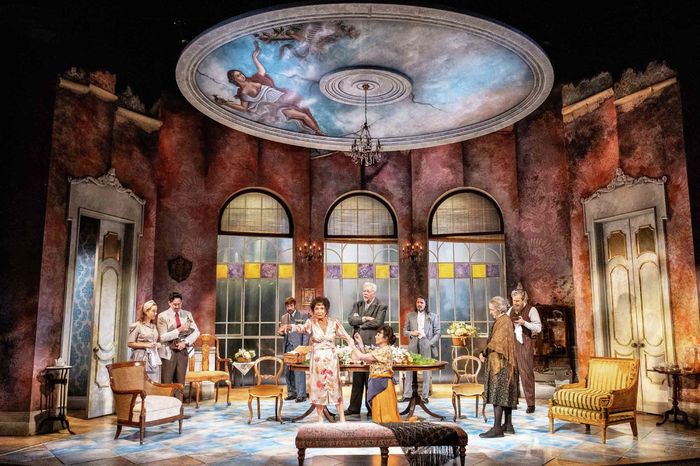Toad Patrol feels timely
This new piece of student writing has many important things to say – at just the right time

On the night I went to see Toad Patrol, the first chill that went down my spine came when I was reading the program. In it, writer and director Lorna Beal explained the play’s desire to not only explore the trauma which accompanies sexual assault, but the “re-traumatisation” which accompanies the victim having to speak about their experiences. It feels impossible when viewing this play to separate it from the news of Trump’s victory in the United States. A convicted sexual abuser, who has vilified and mocked his accusers, being reinstated to a position of global significance aligns precisely with the play’s warnings over the willingness of people to ignore signs of abuse and misogyny.
The play’s genius lies in its ability to display how this can also affect the university student. Although never explicitly stated that the university the characters all attend is, in fact, Cambridge, some details provided feel uncomfortably familiar. The attendance of consent workshops, the presence of boisterous clubs and societies, and even the idea of a ‘toad patrol’ itself feel aimed to unsettle Cambridge students with its verisimilitude. But, in a country where 62% of students have experienced forms of sexual violence, it seems that this is urgently needed.
“If it wasn’t apparent, this is a brilliant script by Beal”
The play itself follows four university students who are out in a field, trying to ensure toads are able to cross the nearby road safely. The group’s dynamics are initially clear. Ben and Gracie (played respectively by Milly Kotecha and Sophia Orr) are the archetypal frenemies, exchanging insults back and forth across the stage in a manner that provoked plenty of laughs from my audience. Next to them, the seemingly wholesome Craig (played by Edward Campbell) looks on, trying to stop the bickering, and making occasionally pitiful comments surrounding his lack of friends, much like a 90s sitcom character.
Yet there is one student, Jess, played by a quiet, yet forceful Aaliyah Ogunlana, who is separated from the rest of them both in enthusiasm and physicality. Uninterested in the toads, Jess’ voice is what begins the unravelling of the group, and enters us into an hour of twists and turns where the truth is constantly being obfuscated. The performances across the board are great, yet I would be remiss if I didn’t mention how equally charmed and repulsed I was with Campbell’s performance. Playing a character of explicit vulnerability and unspoken authority is a challenge for any actor, yet Campbell does it so masterfully that I actually heard tears emerging during his central monologue. Yet, his moment of villainy wherein he coerces Jess to say, “I’m sorry,” feels simultaneously heart-breaking and bone-chillingly menacing.
If it wasn’t apparent, this is a brilliant script by Beal, one that toys expertly with our expectations of each character. Although the dialogue occasionally feels expository, particularly near the beginning, this can be forgiven by how naturally the story evolves from these inclusions. The set is kept minimal, with some decoration near the front and sides of the stage, yet this only adds to the play’s authenticity – although I immediately cringed when I saw the four actors were standing in a painfully cliché circle when the lights came up. Perhaps that’s just my taste. The staging gets better extremely quickly.
“A brilliant play in a week which has sadly underscored why it needs to exist”
The only other gripe I have to make with the play is its ending. Whilst nicely cyclical and harrowing in its messaging, I sensed I was not the only one who was caught off-guard by its abruptness. The audience barely had time to digest it before they were being asked to give the cast a well-deserved round of applause, but, I like to think, had it been made slightly more obvious the ending was in sight, we would’ve given them a standing ovation.
Toad Patrol is a play that demands much of its audience. It not only asks viewers to reconsider their perceptions of misogyny, abuse, and friendship, but also challenges them to confront how they might handle a situation like the one faced by its characters – a scenario that, unfortunately, feels all too familiar in the world we currently live in. A brilliant play in a week which has sadly underscored why it needs to exist.
 News / Cambridge academics stand out in King’s 2026 Honours List2 January 2026
News / Cambridge academics stand out in King’s 2026 Honours List2 January 2026 Interviews / You don’t need to peak at Cambridge, says Robin Harding31 December 2025
Interviews / You don’t need to peak at Cambridge, says Robin Harding31 December 2025 News / AstraZeneca sues for £32 million over faulty construction at Cambridge Campus31 December 2025
News / AstraZeneca sues for £32 million over faulty construction at Cambridge Campus31 December 2025 News / News in Brief: Maypole mentions, makeovers, and moving exhibits4 January 2026
News / News in Brief: Maypole mentions, makeovers, and moving exhibits4 January 2026 Features / “It’s a momentary expression of rage”: reforming democracy from Cambridge4 January 2026
Features / “It’s a momentary expression of rage”: reforming democracy from Cambridge4 January 2026










